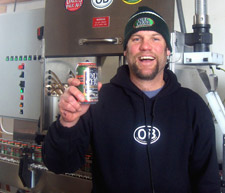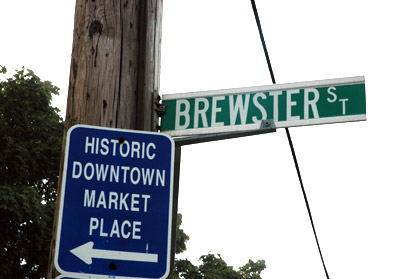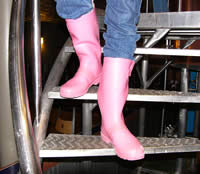 A trifecta today of stories about the role breweries play in communities:
A trifecta today of stories about the role breweries play in communities:
– Dale Katechis, founder of Oskar Blues Brewery in Lyons, Colo., has been selected as the recipient of the Colorado Restaurant Association’s Cornerstone Humanitarian Award. The award is sponsored by the National Restaurant Association, and Katechis will be considered for the national Cornerstone Humanitarian Award.
Among Oskar Blues’ early fundraising efforts was a 1998 event that raised $25,000 for a local family whose husband/father was stricken with cancer. The following year, Oskar Blues raised a similar amount for two children who lost both of their parents within just a few weeks time.
For ten years Dale and Oskar Blues have hosted a local seniors group (The Golden Gang) each month, providing them with free meals and a meeting space for their gatherings.
Oskar Blues has also hosted local high school bands in its music room, giving young musicians the chance to raise money and play on the same stage that welcomes national and local bands.
“My mom raised my brothers and me with the message that helping out the community is a requirement,” Katechis said. “I’m trying to uphold her high standard. Thankfully I have a staff that shares my love for lending a helping hand. None of the good we’ve done could happen without their help, it’s a team effort.”
This year Oskar Blues donated several thousand dollars toward the building of a new weight room for the Lyons High football team, and a skate park in Lyons.
– Don Russell (Joe Sixpack) writes today about the pub as an urban tonic.
His column focuses on the newly opened Dock Street Brewery & Restaurant in Philadelphia’s Cedar Park section, which community leaders hope will bring new spirit to their neighborhood.
Beer as an agent for positive social change – can you believe it?
Well, yes, if you’ve been paying attention. Northern Liberties took off after the 700 and Standard Tap beer bars opened; the same thing is happening in Fishtown in the vicinity of Johnny Brenda’s, and in the newly minted Newbold section that surrounds the South Philadelphia Tap Room.
This is Community Infrastructure 101: People need a comfortable gathering place to meet and welcome outsiders. A brewpub is ideal in an urban setting because it attracts singles and young families who are in the market for affordable rowhouses. They come for fresh beer and hunker down for life.
Russell describes a pub designed to fit into its neighborhood, one much different than Dock Street’s now-closed original location next to the Four Seasons in Logan Square (long on polished brass and marble).
– The Pelican Pub & Brewery’s fourth annual Brewers Summer Games, held in June, raised more than $5,000 which will be distributed to two local charities: Nestucca Valley Boosters and Caring Cabin. These funds were raised from beer, root beer, food and clothing sales.

Judith Bennett writes that women brewers were so common during the 16th century that in northern England the term brewster was preferred for anybody who made beer, male or female.
 If you’ve been following Teri Fahrendorf’s brewery trip across America (and if not, why not?) you know she’s assembling a
If you’ve been following Teri Fahrendorf’s brewery trip across America (and if not, why not?) you know she’s assembling a  A trifecta today of stories about the role breweries play in communities:
A trifecta today of stories about the role breweries play in communities: